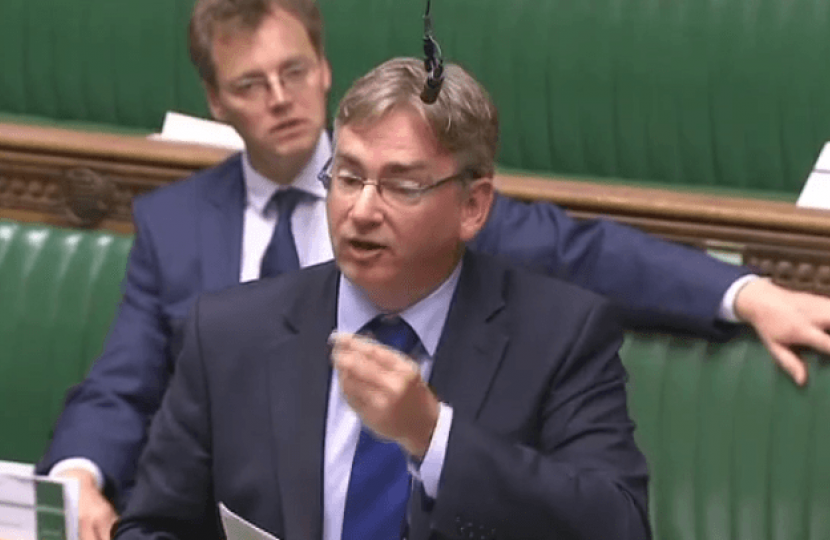
Julian Knight gave a speech on the Privatization of Channel 4 in the House of Commons on 14 June 2022:
I heartily welcome a DCMS debate in this place—three hours, no less! My friend the hon. Member for Ochil and South Perthshire (John Nicolson) said that one current and two former Select Committee Chairs were drawn by this debate; he called us the three Doctors. I hope I was not Sylvester McCoy in that scenario.
Despite my pleasure that we are debating a DCMS matter, which thanks to the business managers we were not able to do prior to Prorogation—for example, on online safety—I will not be supporting the Opposition’s rather over-long motion. However, I have mixed emotions regarding the decision to privatise Channel 4.
Intrinsically, as a free market Conservative, I recognise that it is a historic anomaly that Channel 4 should still, after 40 years, be in public ownership. I start from a simple position, which is that all things should be in the private sector unless there is an overwhelming case that they should be in public ownership. Public ownership is so often the dead hand on innovation. It implies stasis and has a wider sclerotic implication for the economy. However, being sclerotic and lacking innovation are two things I could never accuse Channel 4 of during its years. For much of its first 40 years, the broadcaster has navigated its hybrid status between commercial and public ably. Other Members will no doubt list its strengths, which are myriad and cannot melt away like an ice sculpture.
I agree that privatisation will allow Channel 4 to capitalise on its achievements and attempt to keep up with the rampant inflation in the production sphere, which is an aspect of the wider inflation in the economy, but is also due to the success of UK film and TV production. In fact, I think the UK economy would have been in technical recession in 2018 and 2019 had it not been for those industries, such is their importance. However, the idea that privatisation will meant that Channel 4 will compete head-on with Prime or Netflix is an odd one.
Channel 4 is much better using its status—privatised or not—to better collaborate with other public service broadcasters. PSBs need to find a way to offer a combined front to the public: a super-BritBox, if you like. Imagine the entire rich back catalogue of British television streamed in one place and given due prominence through legislation. Does privatisation make such a thing more likely? With the right buyer, probably. It is unlikely that any buyer would look to—how can I put it?—Richard Desmond-ise Channel 4, as we saw with Channel 5.
I am not certain that I take the view of the hon. Member for Manchester Central (Lucy Powell) that a buyer will wait out 10 years and drive down the public service broadcasting. The whole point of Channel 4 is that it has unique selling points. It appeals to a young audience, which is extremely attractive for advertisers and marketeers, particularly in the age of streaming online, as well as for data sharing, which has wider implications.
Does the sale make sense from an Exchequer viewpoint? That is really marginal. It will raise enough to service, not pay off, the national debt for a total of 72 hours. Such is the lack of value to be derived that the Treasury has said that it is happy for the Department for Digital, Culture, Media and Sport to pledge the money towards the levelling-up agenda. We will see what comes out in the wash in that respect, but I always await the pleasant surprise of the Treasury following through on such a commitment. However, let us be frank: this is not about raising money. It is probably not about the idea that the channel will be a drain on public resources either; it has never been one in the past. However, it is better off being placed in the private sector to ensure that it can grow and develop.
Then we have the elephant in the room—the Jon Snow at Glasto, if you like. Is this in some way a revenge play? I hope not, because such things are deeply unbecoming. As individuals and collectively, we must always rise above such emotions. Personally, I believe that some of Channel 4’s Brexit coverage was shrill in the extreme and that it did not do itself any favours, but as a political class we have to be bigger than that in all respects. Actually, whenever I have gone on Channel 4 programmes, they have been perfectly fine: I have always been treated with respect and asked very thoughtful questions. We do Channel 4 down, but in many instances it offers unrivalled international coverage, and we would be really lacking without it.
In summary, is the privatisation of Channel 4 the right course of action? Probably, but only marginally. Is it being done for the right reasons? I sincerely hope so, but I would be more convinced if it were part of a genuine suite of measures to deregulate our economy and embrace the private sector, rather than being a one-off. Frankly, what we need in the Conservative party is not pieces of red meat to be tossed, but a genuine and coherent plan to offer the public so that they understand exactly what we are and what we are trying to achieve. That would happen if the word “privatisation” were used much more often, not just in our manifestos but in our public utterances.
